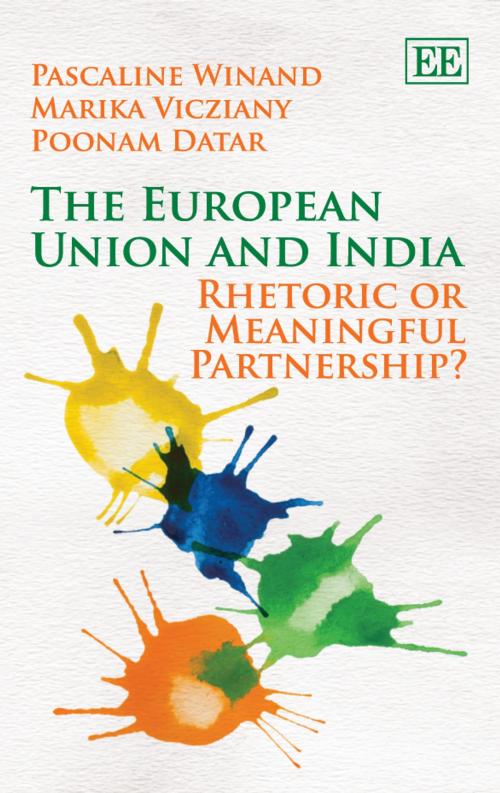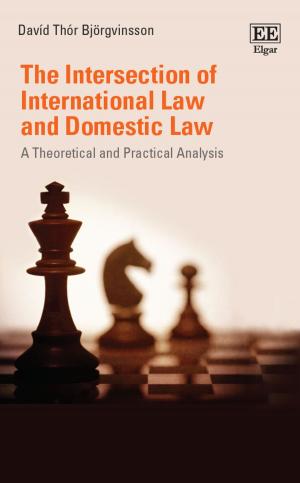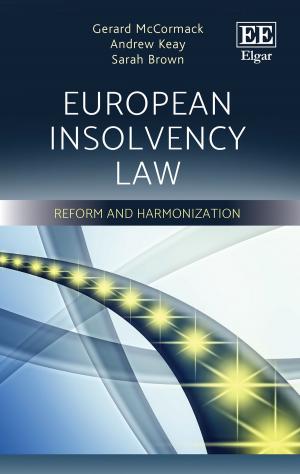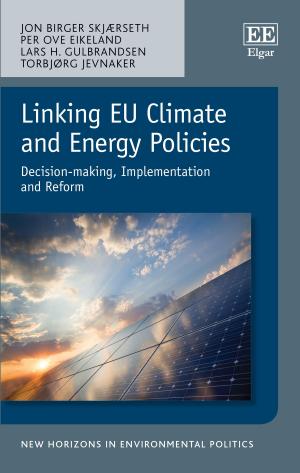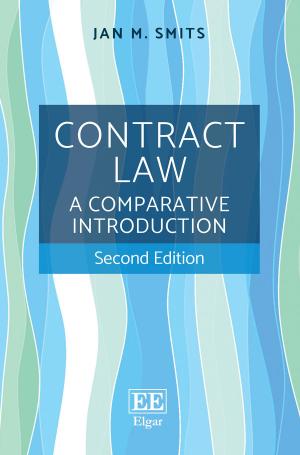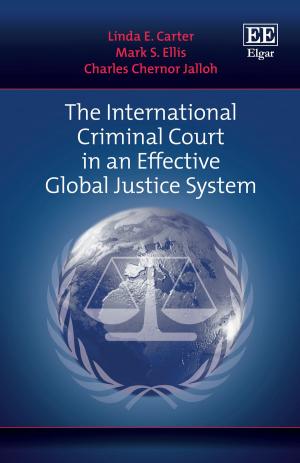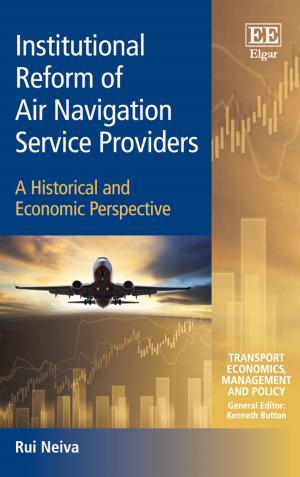The European Union and India
Rhetoric or Meaningful Partnership?
Nonfiction, Social & Cultural Studies, Political Science, International, International Relations, History| Author: | P., Pascaline Winand, Marika Vicziany, Poonam Datar | ISBN: | 9781783470396 |
| Publisher: | Edward Elgar Publishing | Publication: | January 30, 2015 |
| Imprint: | Language: | English |
| Author: | P., Pascaline Winand, Marika Vicziany, Poonam Datar |
| ISBN: | 9781783470396 |
| Publisher: | Edward Elgar Publishing |
| Publication: | January 30, 2015 |
| Imprint: | |
| Language: | English |
This multi-disciplinary book provides a comprehensive analysis of the EUIndia relationship from 1950 to the present day, as a way of assessing whether a meaningful and sustainable relationship is emerging and whether it will play a role in the future of international diplomacy and business.The question comes at a time of significant changes in the re-configuration of global power. Using both historical insights and contemporary policy analysis, the authors investigate whether the social, economic and political interests of the EU and India are genuinely compatible. Leaders in both regions have been promoting the relationship for many decades, but the authors scrutinise their words to discover whether they are merely rhetorical gestures or reflect genuine complementarities. They also investigate the motivation behind the relationship, and provide an in-depth analysis of the areas of mutual interest and conflict. The book examines these issues in the context of the history of the EUIndia relationship, alongside contemporary policy concerns. This comparative book will appeal to academics, students and policy-makers with an interest in international politics and public policy, economic development and business, Asian studies and European studies.
This multi-disciplinary book provides a comprehensive analysis of the EUIndia relationship from 1950 to the present day, as a way of assessing whether a meaningful and sustainable relationship is emerging and whether it will play a role in the future of international diplomacy and business.The question comes at a time of significant changes in the re-configuration of global power. Using both historical insights and contemporary policy analysis, the authors investigate whether the social, economic and political interests of the EU and India are genuinely compatible. Leaders in both regions have been promoting the relationship for many decades, but the authors scrutinise their words to discover whether they are merely rhetorical gestures or reflect genuine complementarities. They also investigate the motivation behind the relationship, and provide an in-depth analysis of the areas of mutual interest and conflict. The book examines these issues in the context of the history of the EUIndia relationship, alongside contemporary policy concerns. This comparative book will appeal to academics, students and policy-makers with an interest in international politics and public policy, economic development and business, Asian studies and European studies.
